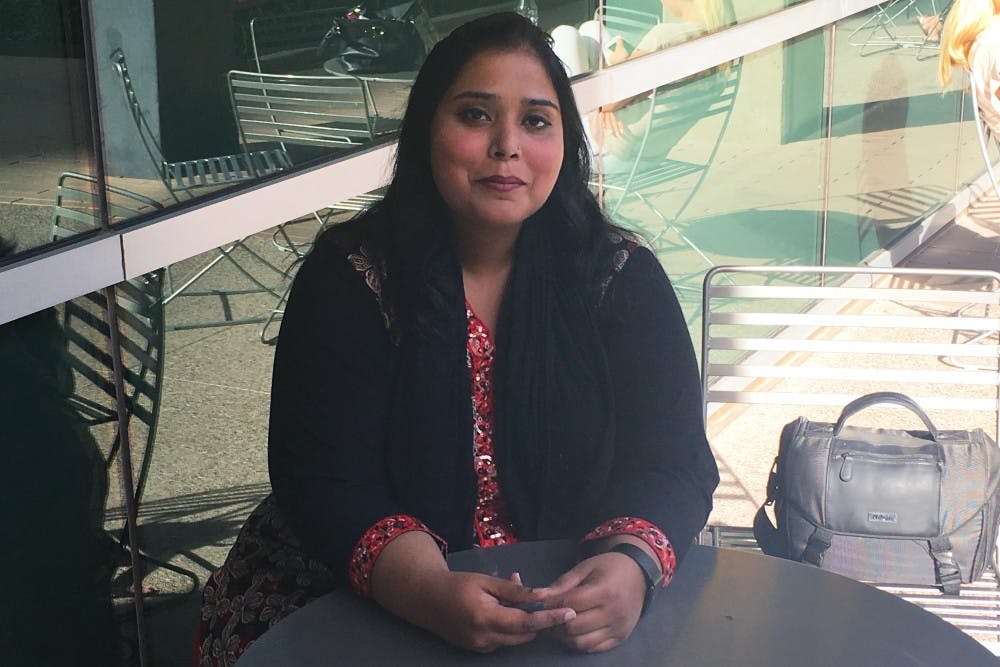While more and more ASU students participate in study abroad programs each semester, ASU started a new kind of global exchange by welcoming four Pakistani professors this semester.
In 2015, ASU started an exchange program between Kinnaird College for Women University and ASU’s English department.
Following the partnership's success, the Center for Religion and Conflict and the Walter Cronkite School of Journalism and Mass Communication began an exchange program in spring 2016 with the University of the Punjab.
For the next three years, four faculty members from the Pakistani University will spend a semester completing projects and honing their teaching skills.
Rahla Rahat, an assistant professor from the University of the Punjab, said that while at ASU, the members are looking to spend time working on teaching, networking and research.
“I think there is so much more to any country than what we see on media,” Rahat said.
Rahat, a professor in sociology who researches gender equality in Pakistan, said an important part of the exchange program is the cultural understanding that comes from it.
Rahat said she told some ASU faculty that she was fascinated with the sight of a Thanksgiving meal she had seen on TV when they asked her what kind of American food she'd want to try.
“The (night) when the Super Bowl was on ... we went to one of the faculty member’s house, and so we had this Thanksgiving in February,” Rahat said.
Rahat said that on a personal level, she wanted to show the similarities that societies and people have through the exchange program.
“When people hear about Pakistan (in the U.S.), it is usually linked to some terrorism, some violence or some kind of that activity,” Rahat said “When you interact with people, people get to know their country through you.”
Seemab Far, an assistant professor of communication studies, is also participating in the exchange program. She said she saw several similarities between Pakistani and U.S. societies.
Far said that contradictory to what she had been exposed to through media, Americans are courteous and helpful toward physically disabled people on public transportation and that people hold doors open for others.
“This thing is not portrayed in media or presented that Americans are ethical, or such mannered or that they care for the people that are walking with them," Far said.
Far also said she was surprised while she was at the airport when she smiled at someone and the other person smiled back. After experimenting that first time, she was greeted with a smile again later on.
“It is a smiling society,” Far said.
Along with the cultural exchanges, Rahat said she and her colleagues are connecting with the global discourse by accessing journals and the writing center at ASU.
“America is no doubt leading academia globally,” Rahat said.
Far, who is currently working on her Ph.D. dissertation, is comparing how society shapes U.S. and Pakistani Muslims’ attitudes towards music because she said Islam does not have a favorable attitude towards music.
Far, who also coordinates the University of the Punjab’s radio station, said she will be able to bring back more innovations and software after working with ASU’s radio station, The Blaze Radio.
Journalism freshman Nicole Tower works at Blaze Radio and said she thinks being able to get exposure to other cultures is an important experience for college students.
“It’s a great way to exchange good ideas,” Tower said “If we have someone from different cultures, different live experiences, different way to grow up, then they can bring new ways of doing things.”
After coming to ASU, Rahat said it shows how similar everyone is and how inaccurate media portrayals of the U.S. and Pakistan can be.
“When you meet people, then you realize at the end of the day we have the same feelings and the same emotions, and at the end of the day we have so much similarity,” Rahat said.
Editor's Note: Due to a reporting error, the title of Rahla Rahat was incorrectly stated. The article has been updated with the correct information.
Related Links:
ASU student finds success after fleeing Iraq
Exchange student finds beauty in desert life
Reach the reporter at lmarsha6@asu.edu or follow @lmarsh2014 on Twitter.
Like The State Press on Facebook and follow @statepress on Twitter.




